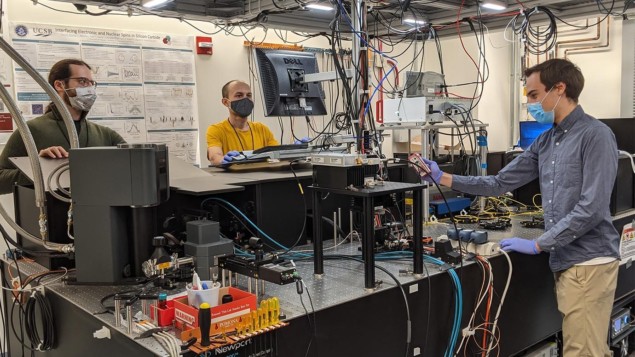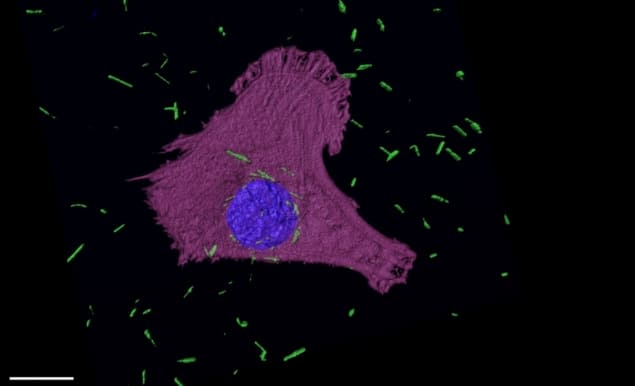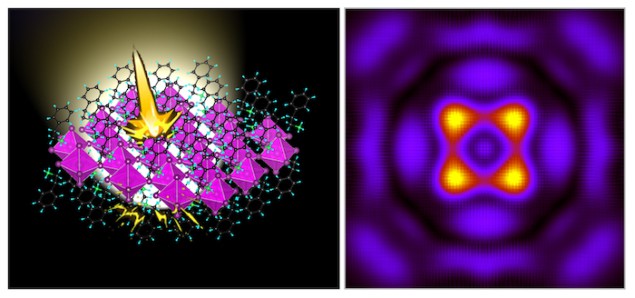Molecular spins show promise as quantum bits

The states of molecular spins in a crystal can be detected optically using the polarization of the photons they emit, researchers in the US have shown. This allowed the team to prepare and precisely read out spin states within molecules – a capability that could be used to engineer quantum bits (qubits) with greater flexibility and control than possible using other platforms.
So far, the most successful platforms for quantum computing have proved to be trapped-ion qubits and superconducting qubits. However, both technologies have significant drawbacks. Ion qubits require high vacuum and electromagnetic traps, whereas superconducting qubits must be made from identical quantum circuits, which are extremely difficult to produce with the required consistency. One possible alternative is the diamond nitrogen-vacancy (NV) centre, which occurs when two adjacent carbon atoms in a diamond lattice are replaced by a single nitrogen atom.

